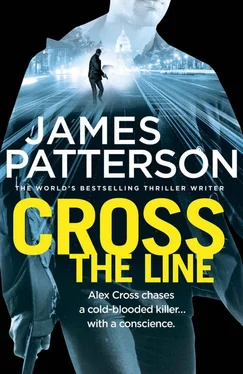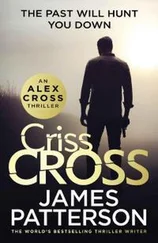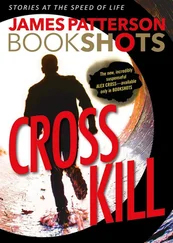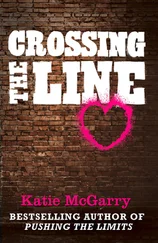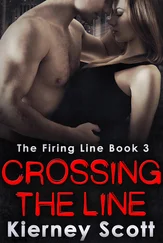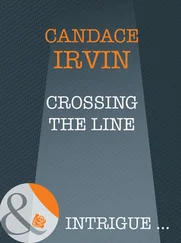I waited a few moments. My cell beeped, alerting me to an e-mail from Judith Noble, the FBI gun tech. Subject: Remington .45.
I pressed the elevator call button, opened the e-mail, and read it. Then I read it again, trying to get my head around her conclusions. Sonofabitch, I thought. How was that possible?
The elevator dinged and the doors opened. I rode the elevator up to the ICU, thinking of all of the ramifications of the e-mail I’d just read.
Part of me wanted to back off, let Mahoney know, and stand aside, let the Feds do their job. Instead, I went to the nurses’ station, showed a nurse my badge, and asked if a Marine officer with a limp had come in. She said he was down the hall, third door on the right.
“Whose room is that?”
“That would be Mr. Potter’s,” she said. “George Potter.”
I squinted, said, “The wounded DEA agent?”
“That’s the one,” she said.
“George and I have worked together quite a bit lately. Think I’ll pay him a visit, see how he’s doing.”
Sometimes it pays to hang back. Other times it pays to rattle a few chains.
I didn’t knock, just stepped quietly into Potter’s room. Colonel Whitaker sat at the DEA special agent’s bedside. The patient looked waxy and sallow, but alert. The two of them were deep in a heated conversation when Potter spotted me.
He tensed, said, “Alex?”
“Came by to see how you were doing, George,” I said, ignoring his reaction. “Last time I saw you, you were hurting pretty bad.”
“I’m still hurting pretty bad,” Potter grumbled as he shifted in bed. “Do you know my old friend Jeb?”
I looked at the colonel and acted like I recognized him from somewhere but couldn’t place him.
“We met once, Dr. Cross,” Whitaker said, getting up from his chair. “In a parking lot at the Naval Academy.”
I snapped my fingers, pointed at him, and said, “That’s it. Colonel...”
“Whitaker. Jeb Whitaker.”
“Small world,” I said. “You knowing George and all.”
“Colonel Whitaker was my commander in Iraq,” Potter said. “Best damned combat officer I’ve ever seen.”
Whitaker made a dismissive flip of his hand. “That’s the painkillers talking. George was the brave one, taking a bullet like that.”
“For all the good it did Elena Guryev,” the DEA agent said, crestfallen.
I said nothing, just looked at Potter and then at Colonel Whitaker.
Potter licked his lips and asked, “You found anything new?”
I thought about that and then said, “When that sniper, Condon, was killed? We found a forty-five-caliber Remington in his motorcycle saddlebag. We got a report back this morning that links the Remington to a series of road-rage killings.”
Whitaker was a cool character, battle hardened. He took the information in stride, even appeared uninterested.
Potter, though, suddenly looked lost in thought.
“Well,” I said, making a show of checking my watch. “I’ve got other appointments, but I wanted to see how you were doing, George.”
Potter broke from his thoughts, smiled weakly, and said, “I don’t think I’ll be running any marathons anytime soon. Thanks for stopping by, Alex.”
“Get better, and we look forward to seeing you back at work,” I said. “Colonel Whitaker? Until fate brings us together again.”
“Until then,” Whitaker said.
I showed them nothing but an expression of goodwill, shook their hands, and left.
Outside, I waited for Sampson to bring the car around and gazed up at the hospital, thinking how much I’d like to be a fly on the wall up there in the ICU.
Jeb Whitaker’s thoughts became a blur after Alex Cross left the room. The master strategist’s brain sped through three different plans of response in the few seconds before Cross’s footsteps faded and George Potter spoke.
“Quite the coincidence,” Potter said.
Whitaker knew immediately what the DEA agent was talking about but acted as if he didn’t.
“How’s that?” the colonel said, crossing to the bathroom.
“We framed Condon with diagrams of the attacks and left a gun that turns out to belong to this road-rage killer?”
“Incredible,” Whitaker said, going inside. “Give me a second to piss.”
A few moments later, he flushed and then washed his hands. He was drying them on a paper towel as he exited.
Potter studied him, said, “You have a special agenda, Colonel?”
Whitaker balled the paper towel loosely in his hand.
“I’m not following,” he said, coming to the wounded agent’s bedside and studying the lines that connected Potter to various machines.
“You’ve been killing drivers like that shithead who killed Lisa,” Potter whispered harshly. “You stuck that gun in Condon’s motorcycle bag to throw them off you.”
Whitaker thought of himself as Mercury, said, “And what if I did? Isn’t that what we’re all about, George? Cleaning up things that need cleaning up and getting on with a better life for all?”
Potter sputtered, “Who’s to say Cross is not onto you because of these road-rage killings?”
“Impossible.”
“No, we have to assume Cross suspects,” the DEA agent said. “Order everyone to destroy phones and computers. Tell them to—”
Whitaker thought of himself as John Brown then and said, “Who gave you command of this operation, Potter?”
“I did, sir,” Potter said. “I took a goddamned bullet to make sure that the Guryev bitch shut her mouth. Your secret vendetta has threatened us all, the entire Regulator movement. From now on, I’m calling the shots, Colonel.”
Whitaker stared at Potter, blinking slowly for several moments, then passed the balled-up paper towel from one hand to the other and tossed it over Potter toward the wastebasket. The DEA agent’s eyes followed it as it went in.
Nothing but net.
When Potter looked back, Whitaker was gazing at him sympathetically.
Click. Click .
The colonel pressed the push-button device the DEA agent used to control his narcotic drip. Whitaker had used one of these hundreds of times after his war injury.
Click. Click.
The colonel said, “I’m giving you a monster dose of morphine here, George. It will help things go quicker.”
Potter looked puzzled until he glanced at Whitaker’s right hand. The colonel held a hypodermic needle attached to an empty syringe; he’d taken it from a medical-waste container in the bathroom. The colonel pulled the plunger of the syringe back and inserted the needle into the injection port of the DEA agent’s IV line.
“What the hell are you doing?” Potter asked even as the narcotic hit him in a rush and he started to swoon and slur. “What’s in that... syringe, Colonel?”
“Air,” Whitaker said, and he pressed the plunger down.
Bree Stone and Kurt Muller pulled into the Fort Hill Rifle and Pistol Club in rural Cumberland, Maryland. After the winds the night before, it was a calm, late-summer day in the Mid-Atlantic, a perfect afternoon for the national combat-pistol championship regional qualifier.
The place was surprisingly packed. There were twenty or more motor homes parked at the Morningside Range. With the tents, flags, food vendors, and booths selling various wares, it could have been a county fair were it not for the irregular blasts of staccato gunfire coming from the range.
Bree and Muller pushed in foam ear protectors and donned sunglasses. Acting like spectators, they worked forward through the crowd to where they could see the competitors attack the course.
A shooter with a fancy custom pistol had just finished, and the score was going up on a digital readout by a judges’ table. Polite applause indicated it was only a so-so effort despite his tricked-out gun.
Читать дальше
